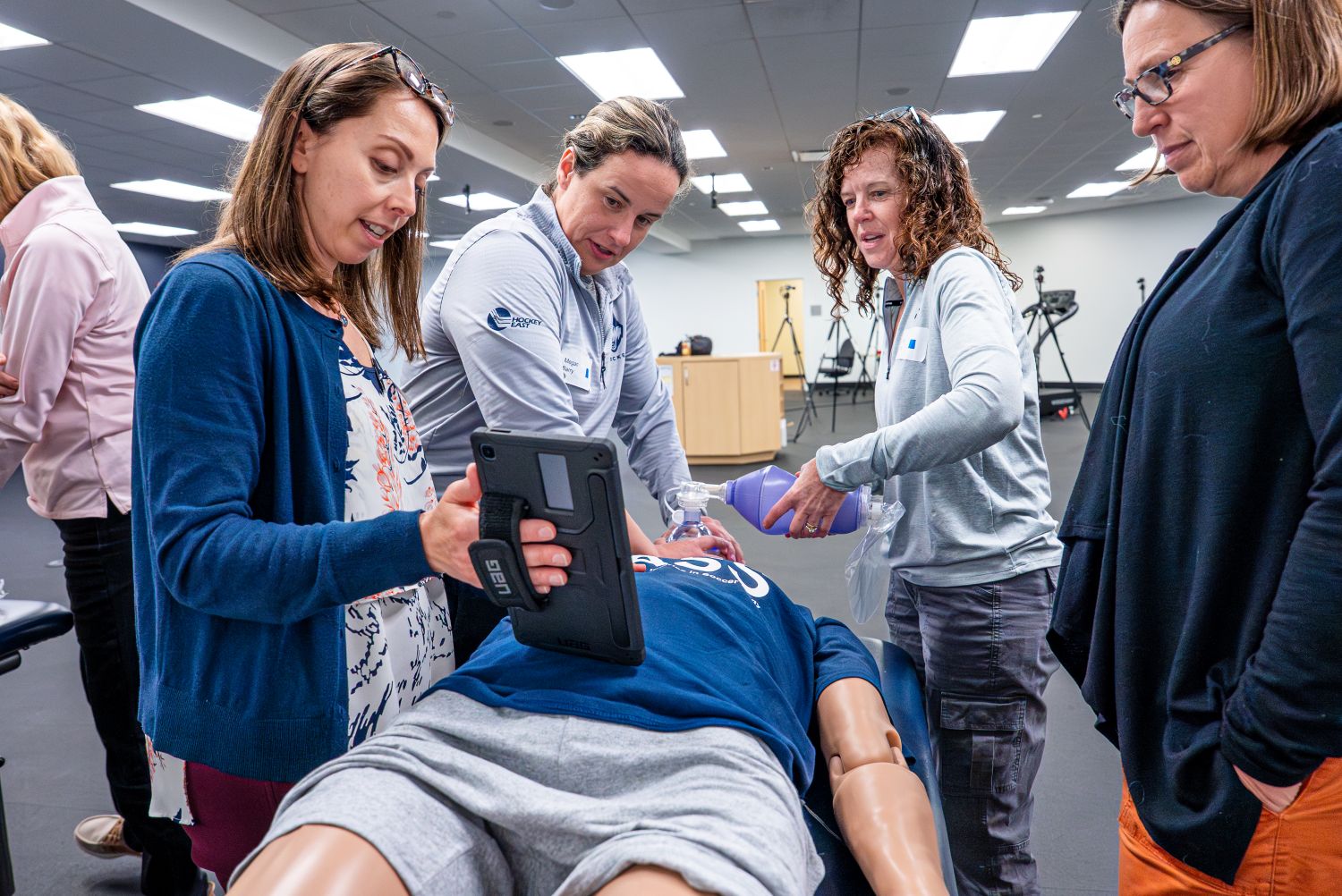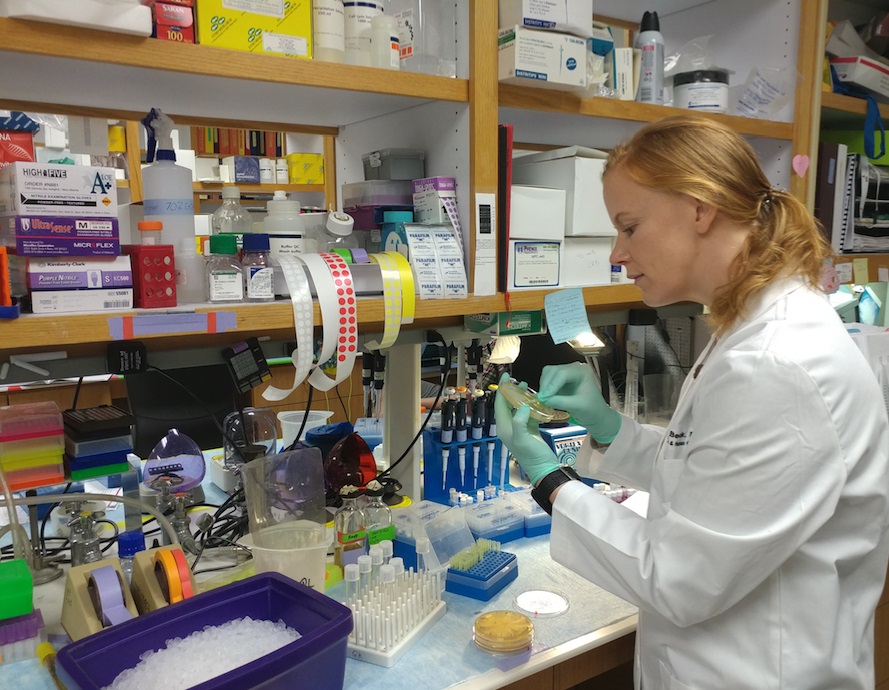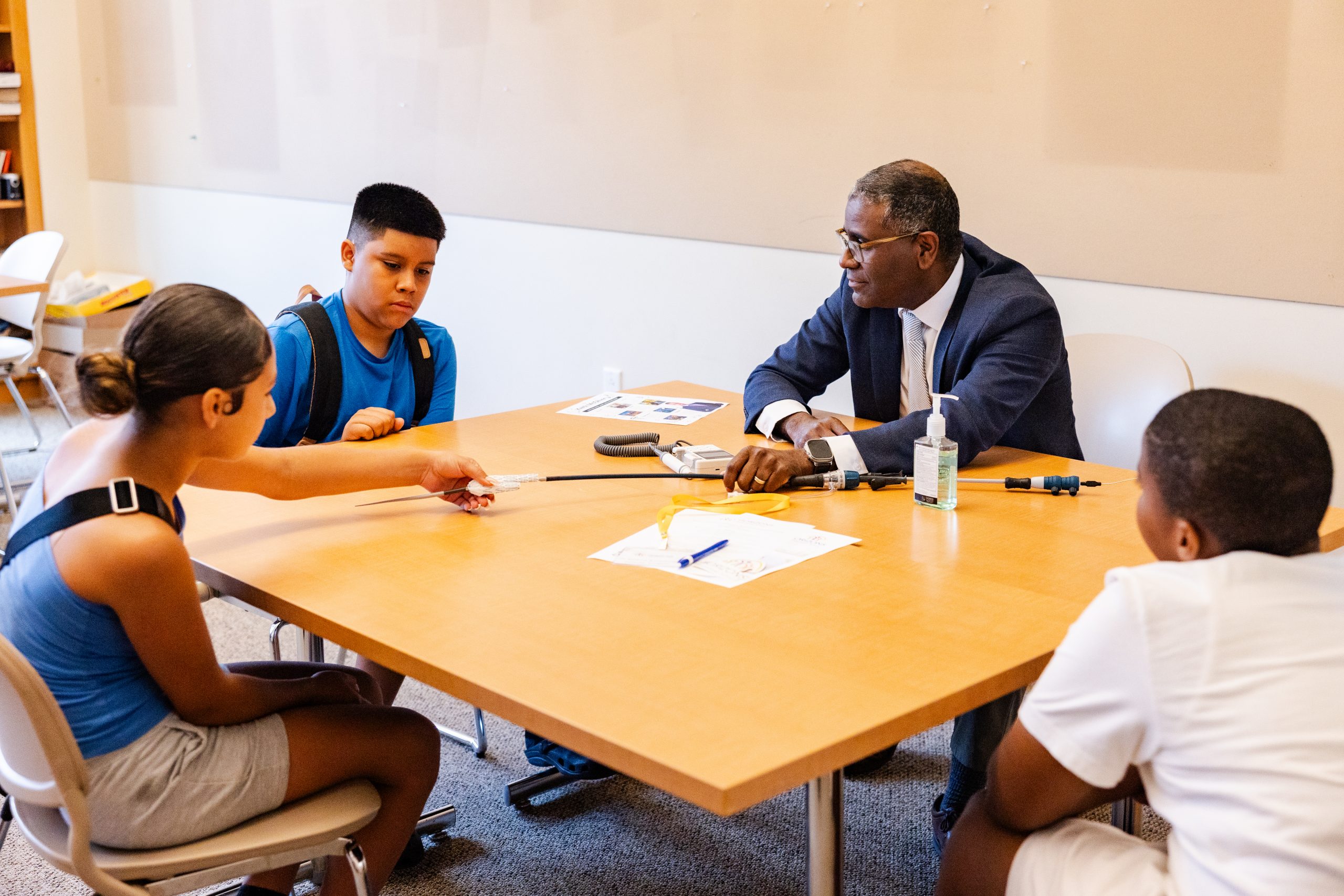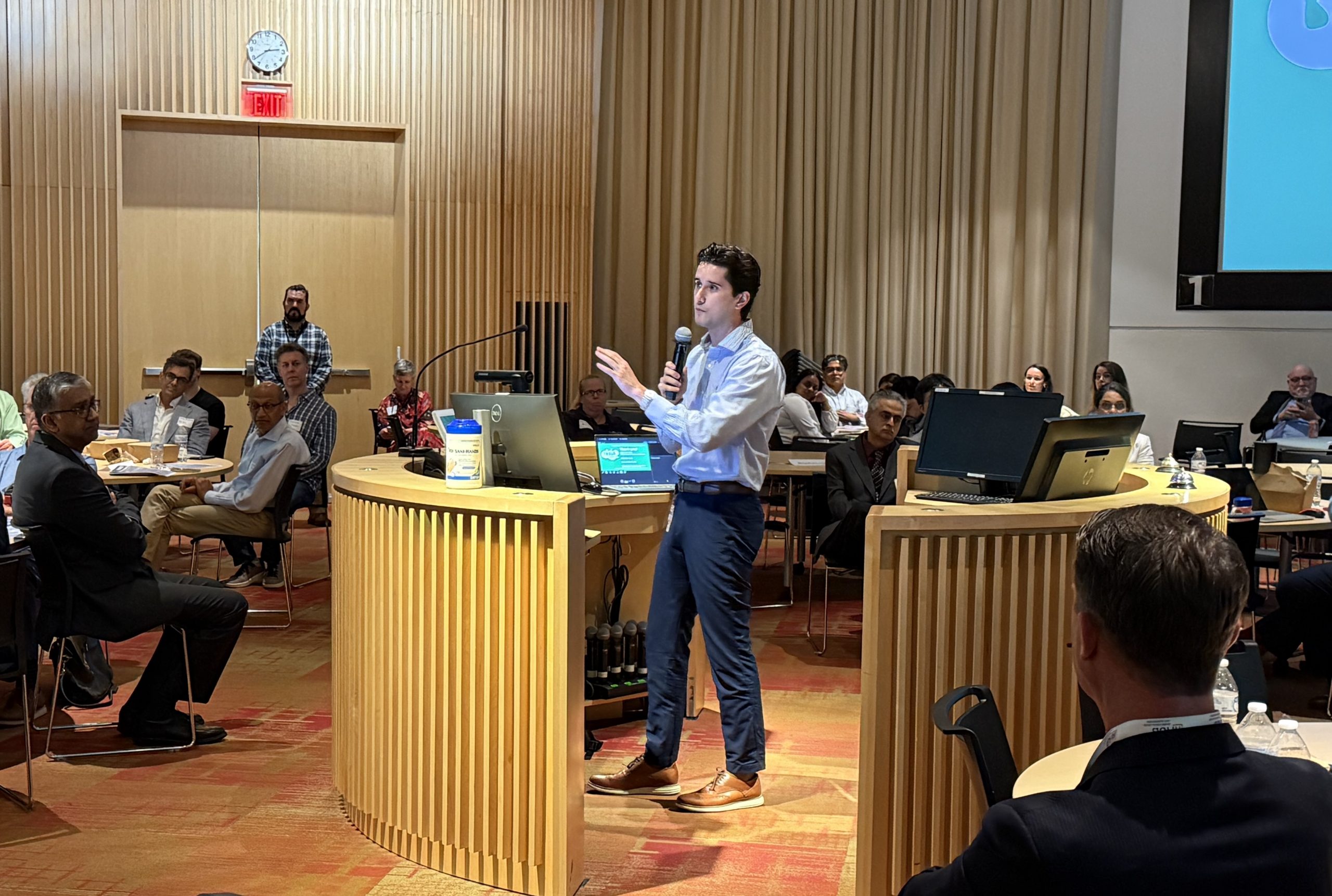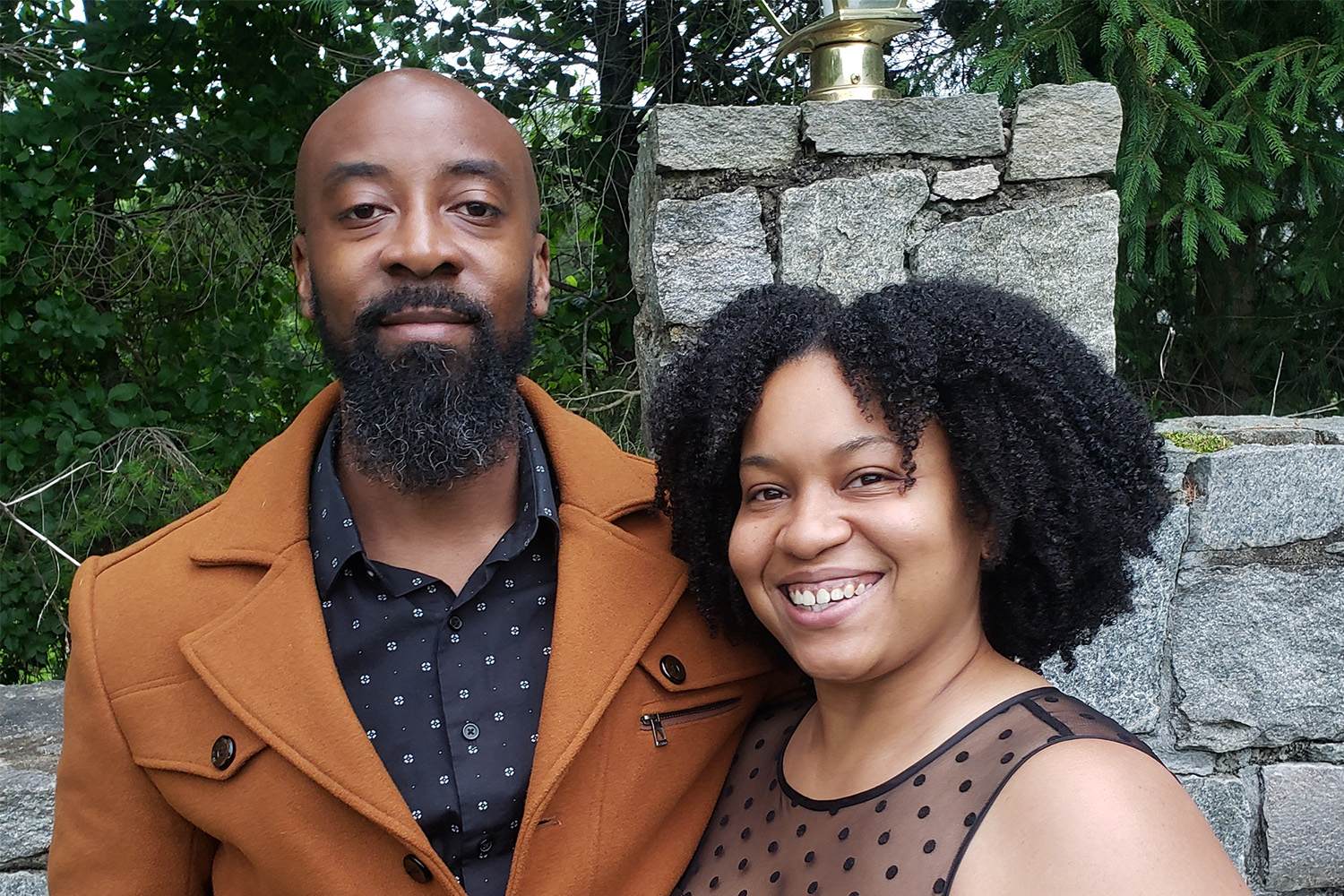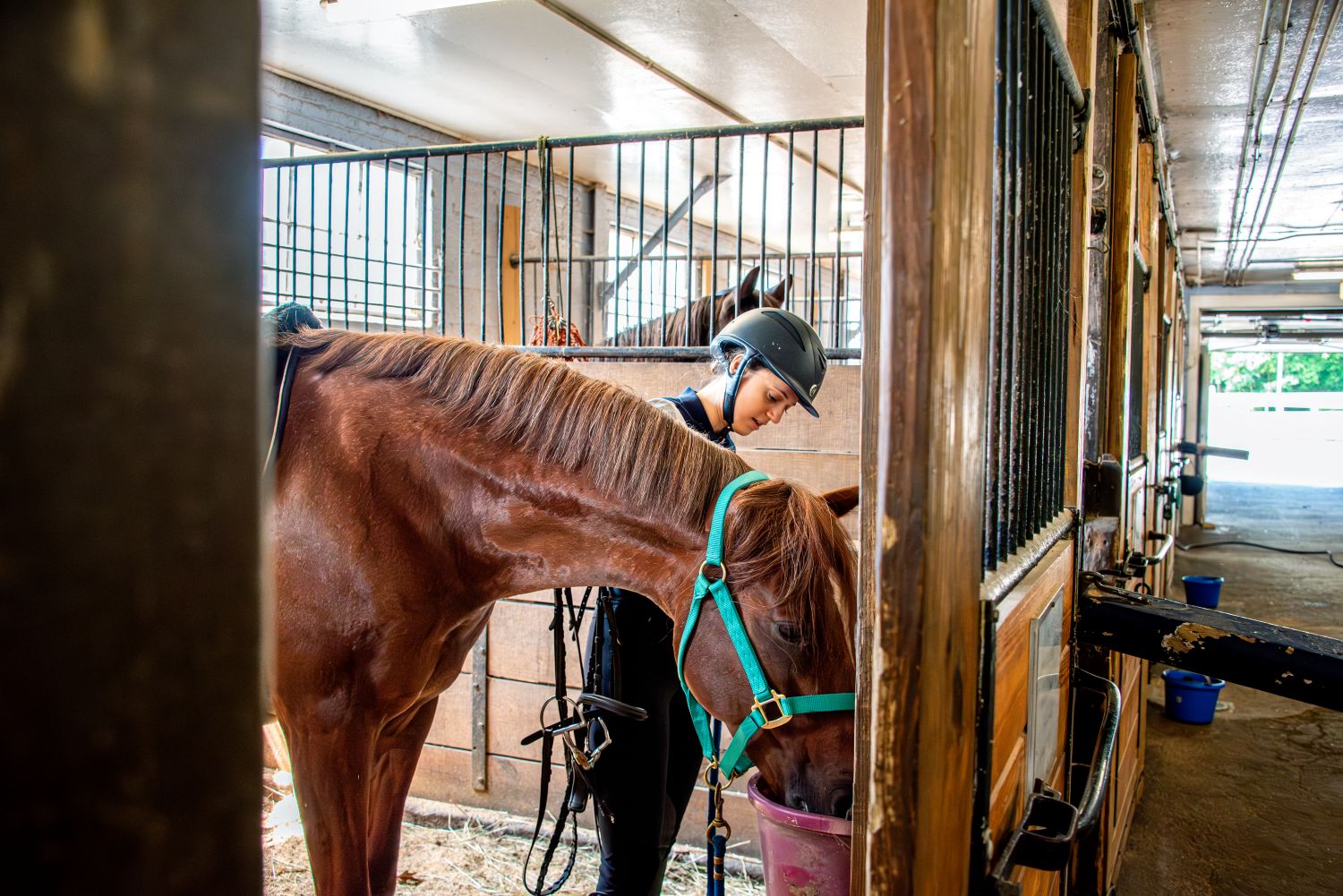From Sideline to Lifeline: Advancing Emergency Skills in Athletic Training Education
Athletic trainers play a key role in keeping athletes safe by providing care, including injury and illness prevention, rehabilitation, and emergency care in cases of catastrophic injury.
Last year, the National Athletic Trainers’ Association (NATA) updated guidance on writing and adopting an Emergency Action Plan (EAP), a document indicating the preparations for and response to any type of catastrophic injury. An EAP is used to help ensure a comprehensive approach to athlete care in any serious illness or injury situation for health care team members and other stakeholders in a prehospital setting. It also accounts for the care of others involved with sports – from coaches and referees to spectators at events.
To help athletic trainers discuss acute emergency injuries and revise their emergency action plans according to the latest evidence-based science, the UConn Institute for Sports Medicine (ISM) held a day-long workshop in Hartford at UConn’s space in the PeoplesBank Arena, formerly the XL Center, for Connecticut athletic trainers.
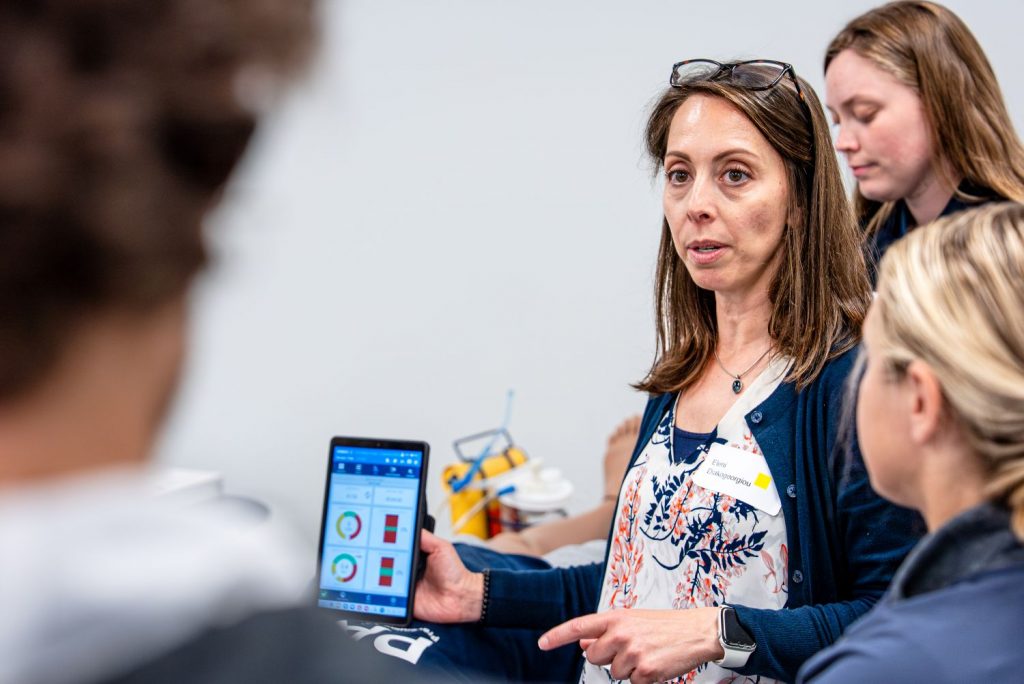
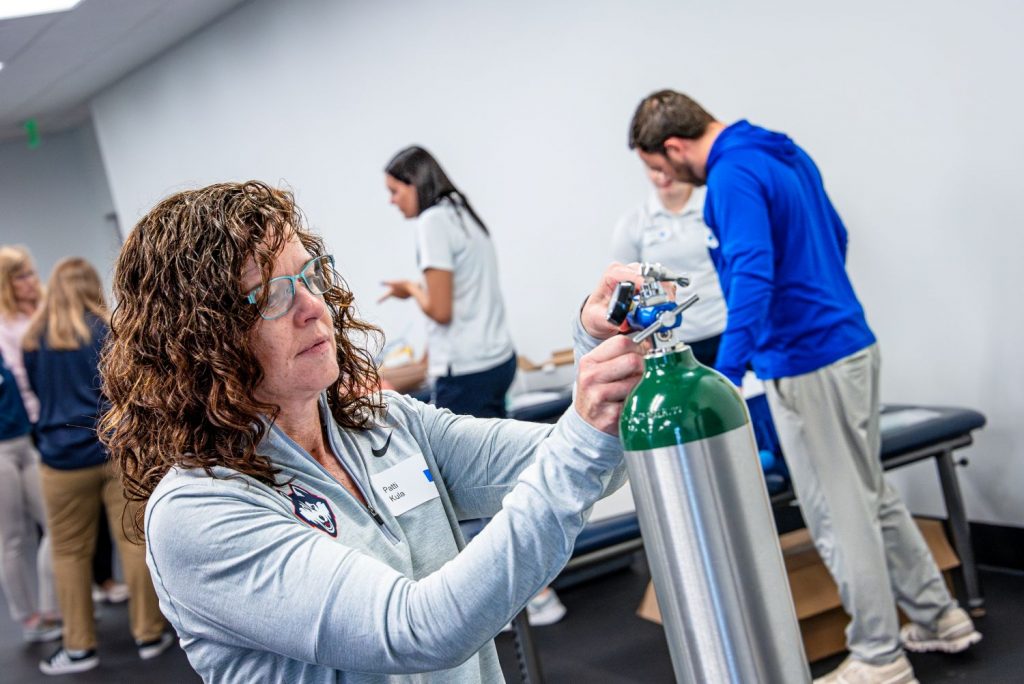
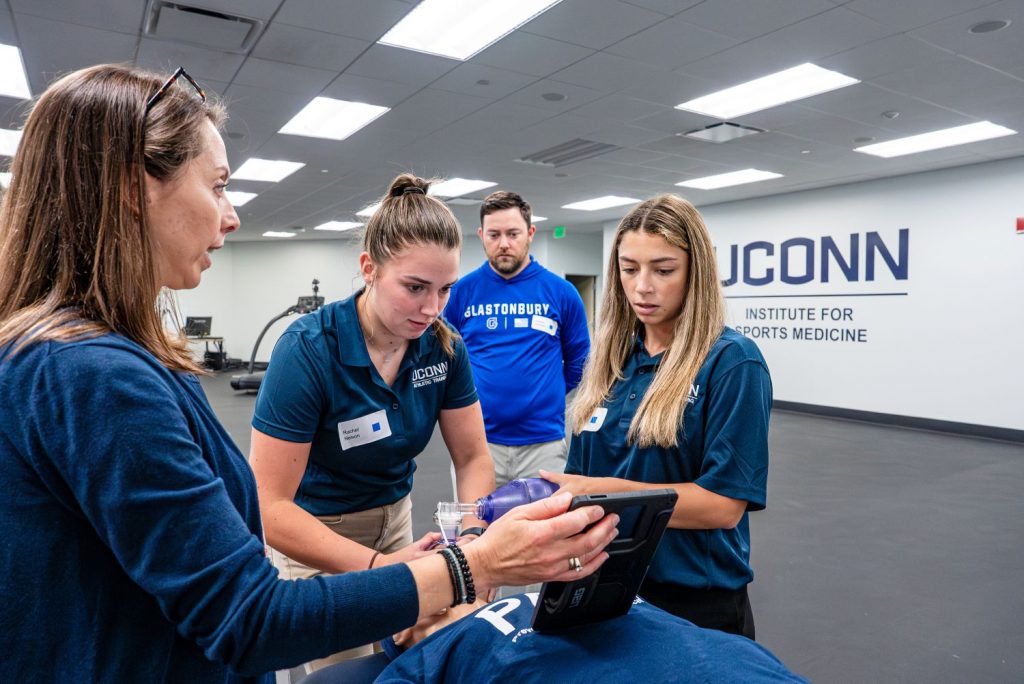
“UConn ISM is committed to the health, performance, and longevity of athletes,” says Laurie Devaney, head of the Department of Kinesiology and co-director of UConn ISM. “We do that by applying our research and medical knowledge to protect athletes of any age and skill level from injury and illness. This includes life-threatening emergencies as they may occur at any time and place.”
Faculty from UConn Health and the UConn Department of Kinesiology in the College of Agriculture, Health and Natural Resources (CAHNR) spoke on a variety of topics during morning sessions related to athlete safety, including care for concussions and loss of consciousness, orthopedics, and airway management considerations.
“The goal of our workshop was to include a variety of emergency topics relevant to Athletic Trainers, which was complemented by engaging hands-on activities,” says Lauren Sheldon, assistant professor in residence and director of clinical outreach, community engagement, and injury prevention for the UConn Institute for Sports Medicine.
The afternoon sessions featured rotating workshops that included hands-on demonstrations and a simulation of a medical emergency, giving athletic trainers practical advice and an opportunity to enhance their skills. It concluded with preceptor training to enhance mentoring and teaching skills to the next generation of athletic trainers.
One athletic trainer who attended the training commented that the workshop “Exceeded my expectations. I love the new location.” Another noted the workshop was “really a blessing for a local AT.”
“Connecting athletic trainers and the ability to collaborate with stakeholders on their individualized EAPs will improve overall response and decrease errors during an emergency when quick and comprehensive response is crucial,” says Devaney. “We’re proud to be able to offer workshops like these to improve the health and safety of athletes around the state.”
This work relates to CAHNR’s Strategic Vision area focused on Enhancing Health and Well-Being Locally, Nationally, and Globally.
Follow UConn CAHNR on social media
Latest UConn Today
- The Most Complete View of the Human Genome Yet Sets New Standard For Use In Precision MedicineNew collaborative research by UConn Health and The Jackson Laboratory decodes the most elusive, difficult-to-sequence regions of the genome from populations around the world
- Career Day Inspires Connecticut YouthChief Vascular Surgeon of UConn Health introduces Hartford middle schoolers to careers in medicine at Horizons at Westminster School
- President Maric Announces Changes to the University’s Senior Leadership TeamUConn to launch national search for Executive VP for Operations/CFO
- UConn Health Innovators Pitch Inventions to Industry and InvestorsInaugural ‘Innovation Catalyst’ event empowers innovators at UConn Health to transform their exciting research ideas into ventures
- Veterans’ Entrepreneurship Program: ‘Just Come and We Will Change Your Life’The UConn program for veterans will surpass 300 graduates with this year's cohort
- New Scoring System for Horse Skin, Coat Condition Provides Insights into Parasite Impact'By being on top of it, we prevent it from being a problem later on for the animals'



